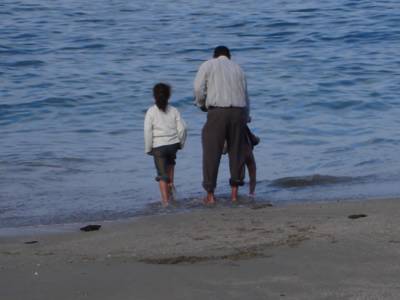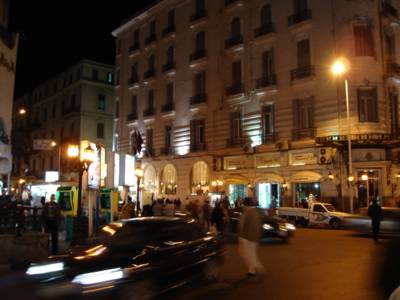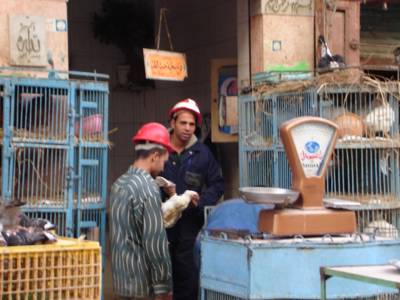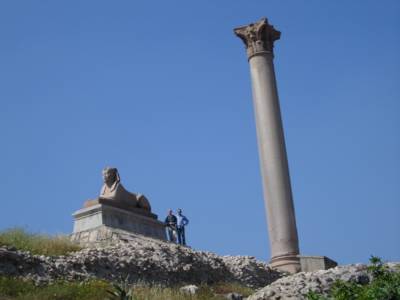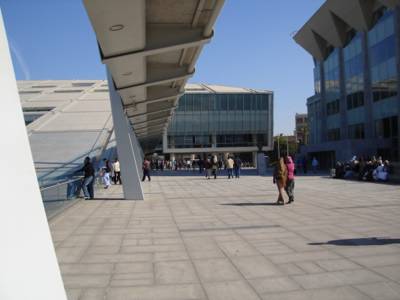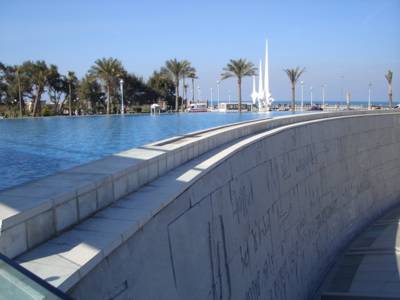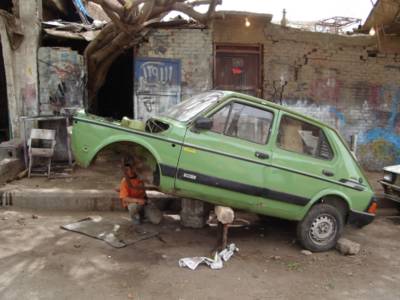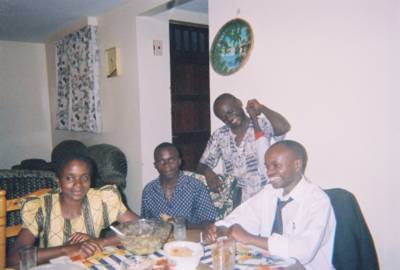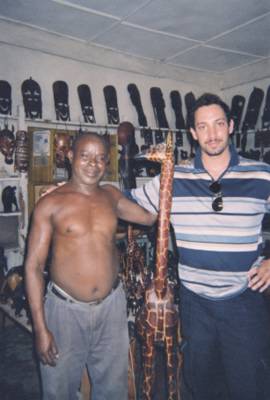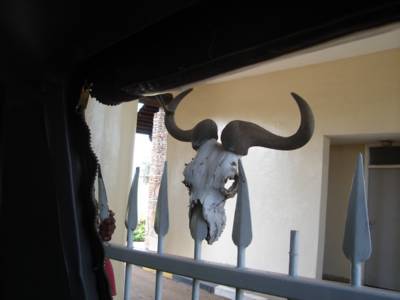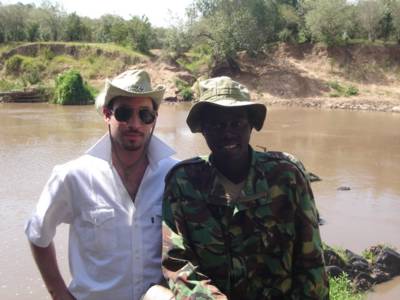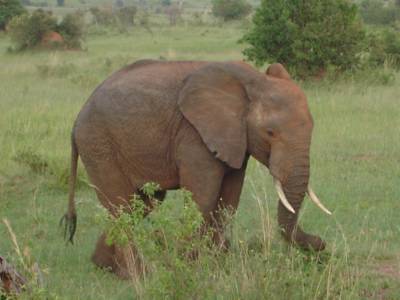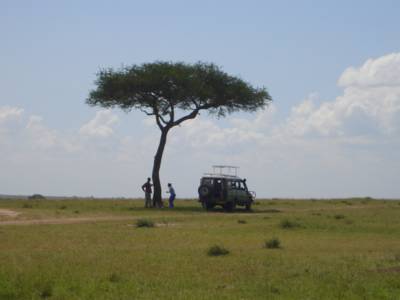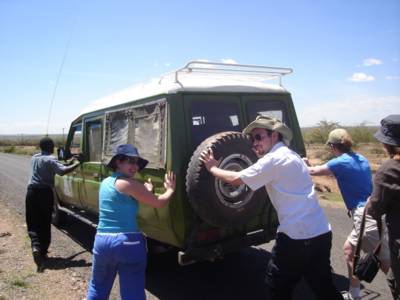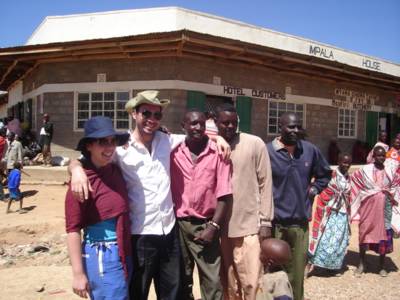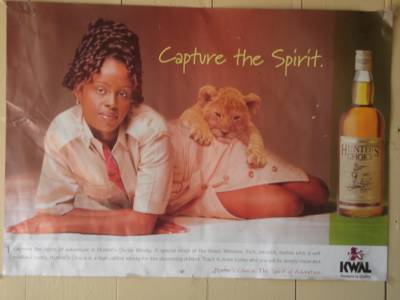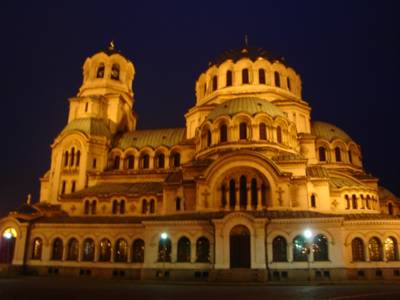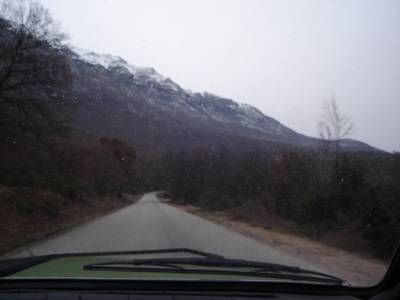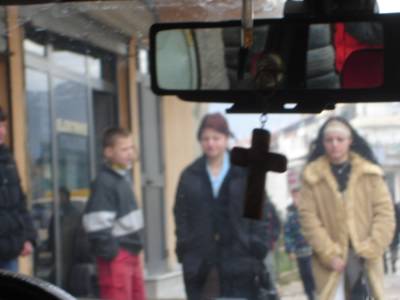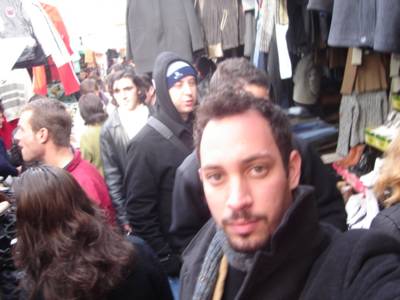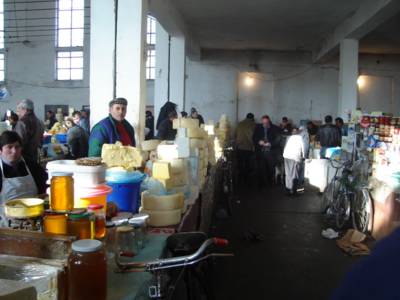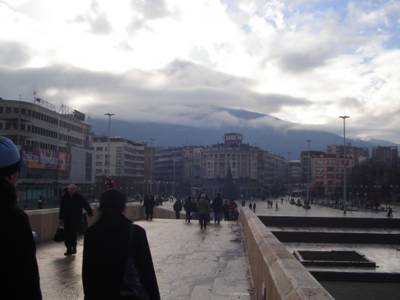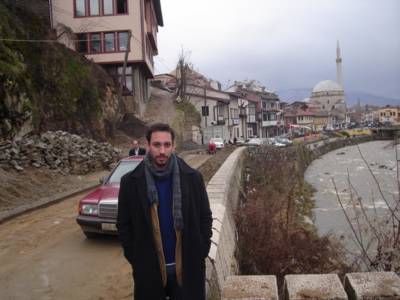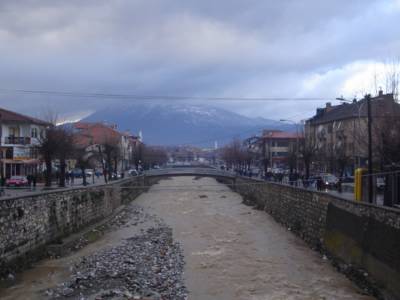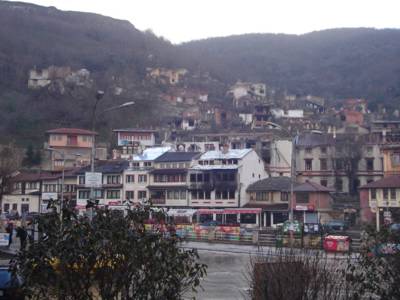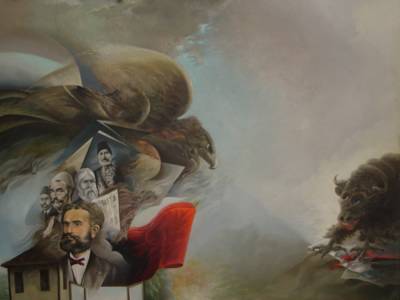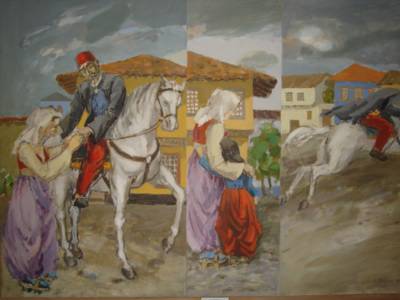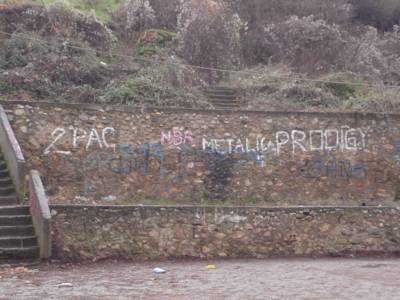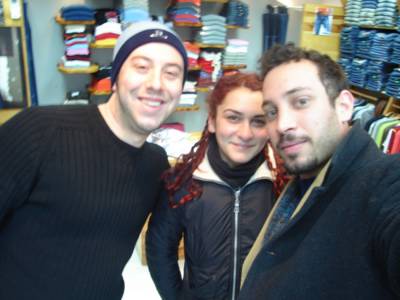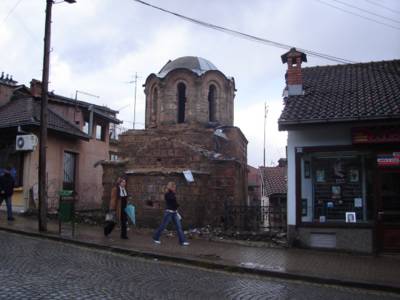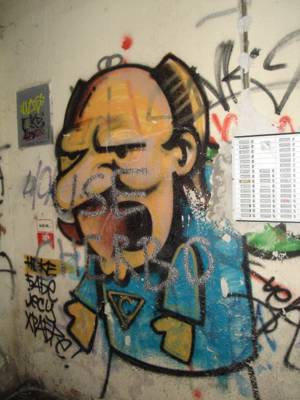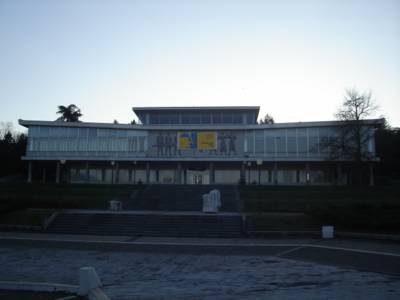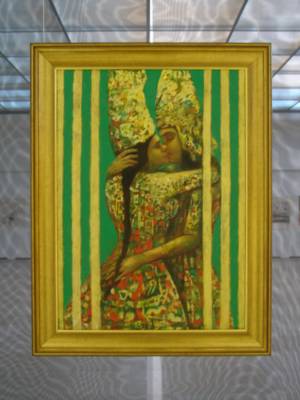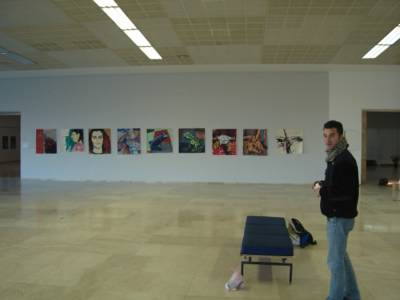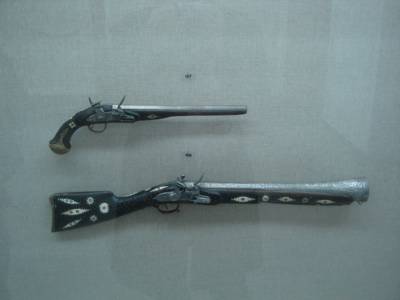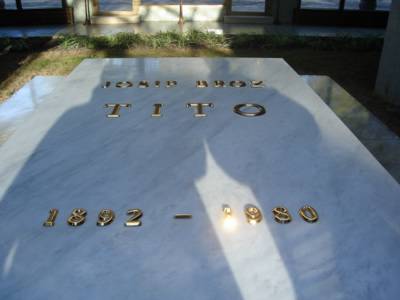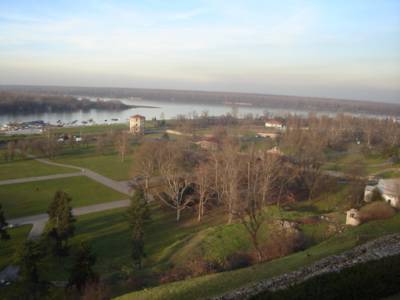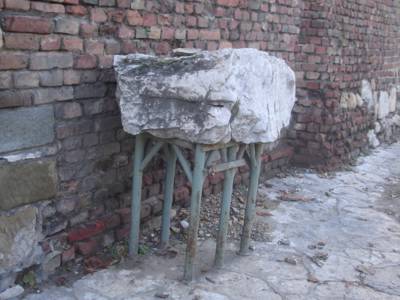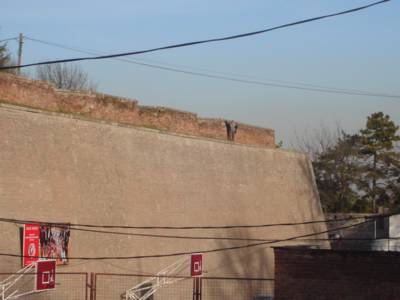Ahmed el-Bedawi is considered one of the four great Egyptian Sufi saints of the 12th and 13th Centuries. The Moulid of Ahmed el-Bedawi celebrates his birth, and ranks as the largest of its kind in Egypt. Although some claims put attendance as high as 3 million, on the night we arrived revelers numbered closer to the tens of thousands. Still, as we six were the only foreigners I saw that evening, tens of thousands curious Egyptians were enough for me. For a brief moment, we became the main attraction.

We arrived before midnight and walked up the main boulevard towards the mosque. Along the way sweet shop loudspeakers blared advertisements, puschcarts hawked funny hats, and kids zigzagged every which way.
 As we neared the mosque, six strong, with backpacks, cameras, and lost looks in our eyes, we realized that we were being followed by a group of people. In this situation, if you stop moving, you're done for. Of course, we stopped. And we stopped right in the middle of the Moque square. Immediately a crowd formed and hit us with a barrage of questions in Arabic and English. "Where are you from?" "Do you like Tanta?" "What's your name?" Our answers in mumbled Arabic drew cheers from the crowd: tatakalem araby kewayes! [you speak arabic well!]. Egyptians are so kind.
As we neared the mosque, six strong, with backpacks, cameras, and lost looks in our eyes, we realized that we were being followed by a group of people. In this situation, if you stop moving, you're done for. Of course, we stopped. And we stopped right in the middle of the Moque square. Immediately a crowd formed and hit us with a barrage of questions in Arabic and English. "Where are you from?" "Do you like Tanta?" "What's your name?" Our answers in mumbled Arabic drew cheers from the crowd: tatakalem araby kewayes! [you speak arabic well!]. Egyptians are so kind.Not a moment after this brief exchange we heard shouts and yells and saw the crowd flee, followed by a rush of security guards brandishing billy clubs and shooing the crowd away. I ducked out and headed off alone, admittedly shaken at the barrage of questions from an impenetrable ring of smiling faces. I sat down on the curb and took a breather - luckily, when I'm by myself, I blend in pretty well.
The rest of our crowd toured the area around the mosque, this time with a security escort, who beat away any molesters and shot everyone dirty looks, or so I'm told.
As for me, I walked around the Mosque and had a look at the festivities. Small outdoor halls had been erected and inside musicians were playing repetitive, loud, sufi ballads.
 Men in gallabeya were swaying to the music, seemingly lost in a trance. Absent from this scene were the creatively dressed whirling dervishes that you may see on the stage or on Nile cruise boats. The dancers here seemed more spontaneous and authentic. Younger guys in jeans got into it too, swaying to the music.
Men in gallabeya were swaying to the music, seemingly lost in a trance. Absent from this scene were the creatively dressed whirling dervishes that you may see on the stage or on Nile cruise boats. The dancers here seemed more spontaneous and authentic. Younger guys in jeans got into it too, swaying to the music.Here's a 360:

After walking around the outside of the Mosque I took off my shoes and stepped inside. I was shocked to find a huge slumber party! It reminded me of a youth group middle school social minus the corner game of spin the bottle. On the floor lay mostly older revelers, sleeping wherever they could find space. I understand that people follow these moulid celebrations around Egypt and beyond, and I imagine that many of these mosque dwellers are caught in the drift.

After my walk I met up with my friends and the night calmed down with a glass of tea. We strolle the more deserted streets of Tanta with a friendly Tantan we met, and ended at a kebab shop at 3am. We ate lamb and chicken while watching the Moulid below.

For a more edifying take on the evening, read Anne's account here.
